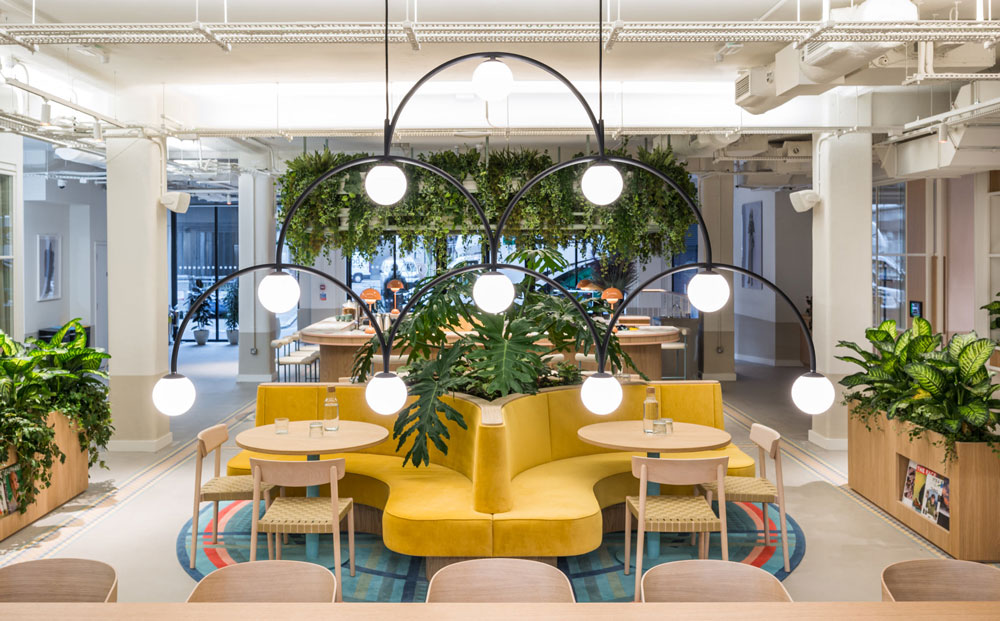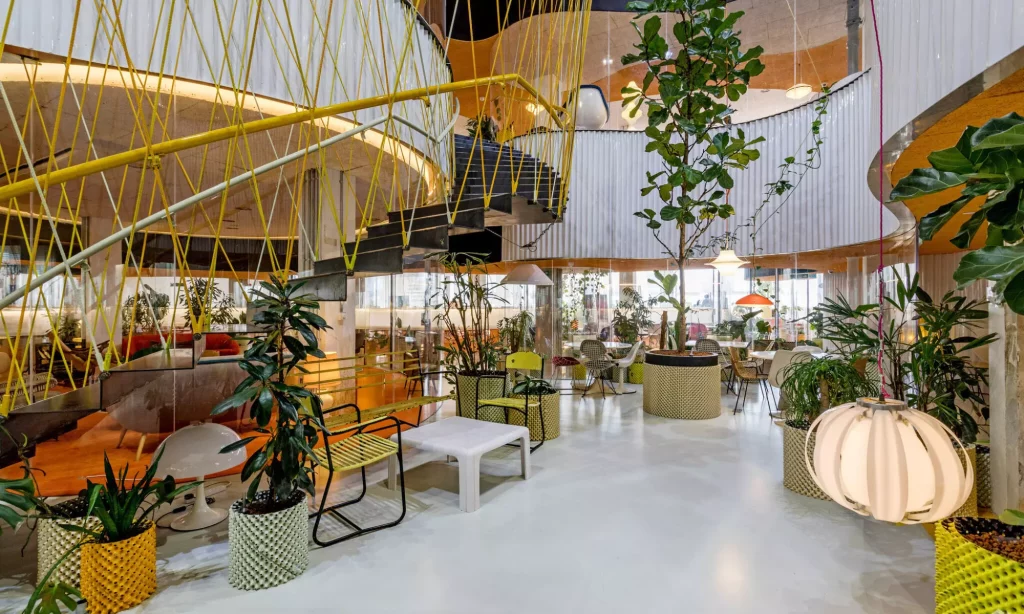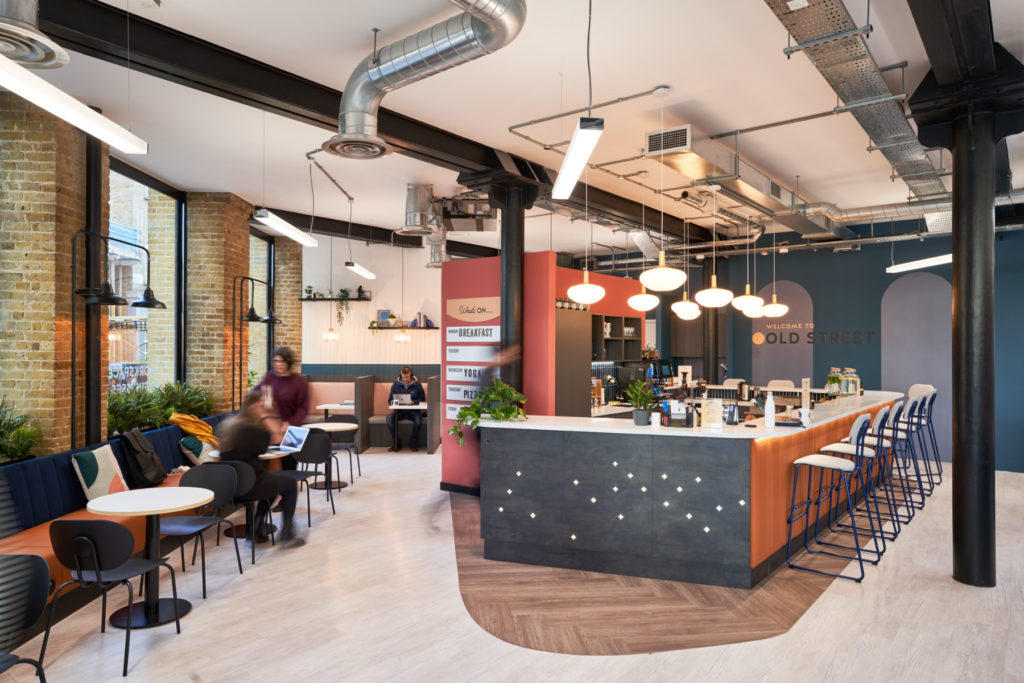Green Co-Working Spaces To Amp Up Your 2024 Work Set-Up
Nderu Kinyanjui
Remote and hybrid working seems to be here to stay for the most part; so choosing the right workspace is a major concern for most from established companies to freelancers. And while the traditional factors like location, amenities, and affordability still hold significance, there is an ever-growing need to be more environmentally conscious in our choices. To that end, we’ve put together some detailed steps to help you choose an eco-conscious coworking space that makes a tangible impact on the environment.
But it’s not just about the physical space. When evaluating potential coworking spaces, it’s important to consider the overall eco-conscious culture of the community. To help you get a jumpstart on your search for the perfect eco-conscious coworking space, we’ve also included our top 5 coworking picks. These spaces have demonstrated a strong commitment to sustainability and eco-friendliness, making them great options for anyone looking to combine productivity with environmental responsibility. But first, here’s how you can search for green co-working spaces in your area:
Finding Eco-Friendly Co-working spaces
- Online Directories: Websites like Coworker.com, Deskpass, and Coworking London provide directories of co-working spaces in London, some of which may have a focus on sustainability and eco-friendliness. You can filter your search to find green options.
- Sustainable Practices: Reach out to co-working spaces and inquire about their sustainability practices. Ask about their use of renewable energy, recycling programs, and efforts to reduce their carbon footprint.
- Member Reviews: Reading member reviews and testimonials can give you insights into the eco-friendliness and sustainability efforts of co-working spaces. Websites like Google Maps and social media platforms can be useful for this.
- Green Initiatives: Check if the co-working spaces have information on their website about their green initiatives, such as energy-efficient lighting, waste reduction, or sustainable transportation options.
- Co-Working Networks: Some co-working networks, like The Cube Workspace, focus on eco-friendly practices and sustainability. You can explore options within these networks.
- Contact Local Environmental Organisations: Reach out to local environmental organizations or sustainability groups in London for recommendations on green co-working spaces.
- Visit in Person: If possible, visit the co-working spaces you’re interested in to assess their environmental practices and get a feel for their eco-friendly atmosphere.
Five Eco-Friendly Co-working spaces to get you jump started on your hunt:
The certifications held by Fora such as BREEAM, Well Certification, and AirScore reflect a strong commitment to sustainability with many of them being fully powered by renewable energy, highlighting their dedication to green initiatives. The design of these workspaces is versatile, designed to meet the unique needs of every user. They are a perfect fit for large teams that enjoy the dynamism of a shared office, solo entrepreneurs looking for room to expand, or those seeking a change from the usual work-from-home routine. With four different membership options, a diverse range of needs are catered for, demonstrating a thoughtfully curated variety of spaces.
Situated at the core of Europe’s biggest climate technology hub, these office spaces act as a nexus for innovators driven by a mutual passion for sustainability. The primary workspace, nestled in London’s County Hall, serves as a base for 100 enterprises committed to making a sustainable impact. Offering a variety of adaptable packages, these office spaces can accommodate the requirements of both emerging startups and rapidly scaling teams. Sustainability is embedded in every aspect of their operations, from their branding to their environmentally conscious website design. This noteworthy London landmark has evolved into the heart of the Sustainable Venture’s ecosystem, housing a diverse array of startups, corporate entities, NGOs, and government organisations.
Members are granted exclusive access to tailor-made services, a global network of creative individuals, regular wellness classes, and a unique cultural events calendar. With workspaces situated throughout East, West, and Central London, finding a Second Home that suits your needs is straightforward. They are B-tech certified and consciously design their spaces to minimize energy and carbon emissions. Emphasizing reuse over construction, they revitalize existing buildings rather than building new ones. This is why their spaces are filled with plant life. They are committed to reducing their overall environmental footprint and use only renewable energy. Therefore, when members join them, they become a part of a 100% green energy community.
With 88% renewable energy usage, B-corp certification, and a three-year sustainability strategy, Work.Life coworking spaces offer a refreshing blend of solo working freedom and community vibes. Designed for individuals like you, these spaces are spread across 11 locations throughout the UK. Their spaces are more akin to vibrant communities than the traditional offices you might be eager to break away from. They are ideal for freelancers, startups, small businesses, and remote workers. Offering flexible options, you can either opt for pay-as-you-go or unlimited membership. You can access these spaces across and beyond London, offering you adaptability and convenience.
Uncommon is committed to creating a positive impact on the climate and its people. They offer a range of membership options including day-passes, weekend passes, dedicated desks, hot desking, private offices, and event spaces. Their workspaces are designed with sustainability in mind, providing an environment for you and your team to flourish. Uncommon has set ambitious goals, including becoming a carbon negative business by 2023. This means they plan to remove more emissions than they’ve released since their inception and in the coming years. In October 2022, they achieved B-corp status, and their ambitious carbon reduction targets have been approved by the Science Based Targets Initiative.
Share This Story
Related Posts

Paris City Guide: Where to Eat, Drink, Stay and Wander Like a Local
Paris City Guide: Where to Eat, Drink, Stay and Wander Like a Local Avalon Afriyie Heading to Paris this winter? As a resident who has

What to Bring to a Dinner Party: 15 Chic Gifts That Go Beyond Flowers
What to Bring to a Dinner Party: 15 Chic Gifts That Go Beyond Flowers Rosa Morell Intimate small-plates soirées or lavish three-course affairs–every dinner party

Palazzo di Varignana–The Sustainable Italian Escape Just 3 Hours from London
Skip Tuscany and head to Emilia-Romagna instead. Set just outside Bologna, Palazzo di Varignana is the eco-luxury resort blending Italian charm, farm-to-table dining, and spa serenity — all less than three hours from London.

Luxury Brighton City Guide
Taking a trip to the seaside? These are the restaurants, bars and shops to add to your itinerary—according to a local.





